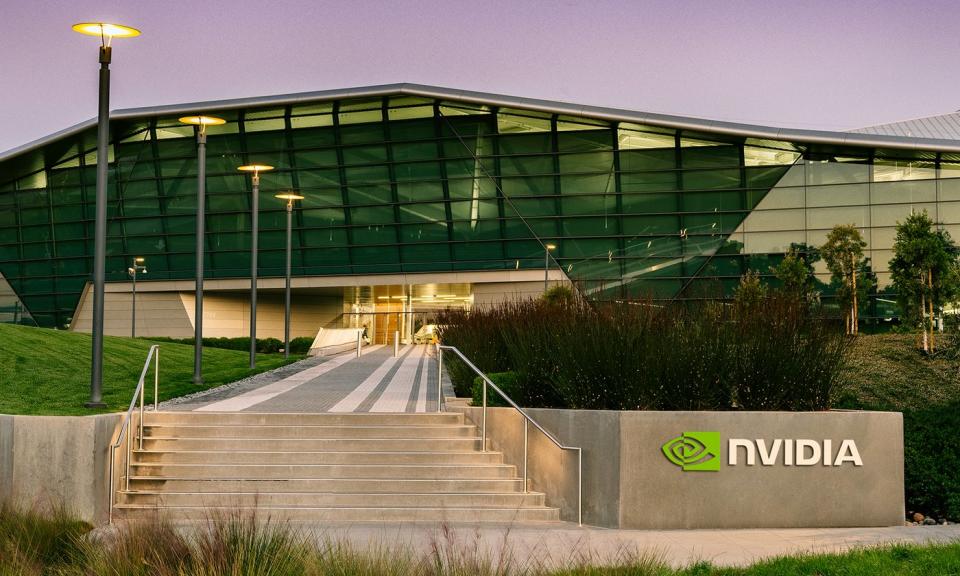Nvidia (NASDAQ: NVDA) was a $360 billion company at the beginning of 2023. It has added $1.8 trillion in value since then, and it’s now the third-largest company in the world behind only Apple and Microsoft.
The heightened interest in artificial intelligence (AI) is the primary driver of that value creation. Nvidia makes the industry’s most powerful graphics processing units (GPUs) for data centers, which developers use to build, train, and deploy their AI models. Those chips drove Nvidia’s data center revenue to more than triple in fiscal 2024 (ended Jan. 28), and the momentum looks set to continue in fiscal 2025.
Nvidia is now using some of its newly acquired wealth to invest in other AI companies, which could hint at where the next wave of AI value is created.

Nvidia bought five AI stocks at the end of 2023
Nvidia filed its first-ever 13-F with the Securities and Exchange Commission on Feb. 14, and it publicly revealed new holdings in five different stocks:
-
SoundHound AI (NASDAQ: SOUN), which develops voice recognition and conversational AI technologies.
-
Arm Holdings, which designs processors for the world’s largest chip companies. This was Nvidia’s largest investment with a value of $147 million at the end of 2023.
-
Nano-X Imaging, which is improving patient outcomes by using AI to enhance medical imaging. This stock was Nvidia’s smallest investment with a value of less than $0.4 million at the end of 2023.
-
Recursion Pharmaceuticals, which is using AI to help with drug discovery.
-
TuSimple Holdings, which developed an autonomous driving platform for the trucking industry.
SoundHound AI stock has been the best performer of the bunch so far, with a 142% gain in 2024 already. It values Nvidia’s stake at around $8.7 million, which doesn’t sound like much, but SoundHound is only a $1.5 billion company.
So should investors follow Nvidia into the conversational AI specialist?
SoundHound has a growing portfolio of AI products
Most of us are familiar with AI chatbots like ChatGPT, Gemini, and Claude. They were originally designed to ingest text-based prompts, and they are capable of generating text content, images, videos, and computer code on command. SoundHound focuses on conversational AI, which is designed to recognize voice-based prompts and respond in kind.
That opens up a range of possibilities, especially in use cases where hands-free functionality is required. For example, restaurant chains use SoundHound’s Employee Assist technology to help workers get fast answers to questions in high-pressure situations, like when they might be serving customers or completing operational tasks.
Similarly, SoundHound’s technology is popular with automotive manufacturers like Mercedes-Benz and Stellantis, which use it to power their in-car virtual assistants. It means drivers can instantly retrieve information about their vehicle’s functionality, in addition to weather forecasts, sports results, and information about local restaurants (to name a few capabilities).
SoundHound recently announced a new partnership with Nvidia‘s Drive platform, which will allow car makers to deliver AI on the edge. That means drivers won’t need network connectivity to use their voice assistant, which makes it available in more places and enhances data privacy.
The Drive platform is Nvidia’s end-to-end solution for car manufacturers wanting to install autonomous self-driving capabilities into their new vehicles. Drive could become a key distribution channel for SoundHound’s technology over the long term, considering it already serves many of the world’s leading car brands.

SoundHound generates little revenue, and large losses
SoundHound brought in $45.8 million in revenue during 2023, which was a 47% increase compared to 2022. The company is still in the scale-up phase, although it did finish last year with a $661 million order backlog — and that number doubled from the end of 2022.
Management’s forecast for 2024 points to around $70 million in revenue, which would represent an accelerated growth rate of 54%.
That’s great news, but SoundHound’s bottom line warrants some concern in the near term because the company lost $91.7 million last year. While it’s normal for small technology companies in their growth phase to lose money, SoundHound only has $95.2 million in cash and equivalents on its balance sheet, so it can’t afford another year like that in 2024.
Risk-averse investors shouldn’t follow Nvidia into SoundHound stock
The financial picture outlined above makes SoundHound stock a risky investment relative to other AI stocks like Nvidia or Microsoft. There is a strong possibility the company will need a cash injection within the next year or two to continue operating, and that creates uncertainty.
With that said, Nvidia’s investment in SoundHound stock is a big vote of confidence, and it could breed more unique deals like the one with its Drive platform. Plus, SoundHound’s order backlog could lead to accelerated revenue growth in the coming years.
But remember this: Nvidia’s stake in SoundHound is only worth $8.7 million. If it went to zero, it would have virtually no impact on the $2.2 trillion chip giant. It would be the equivalent of someone with a net worth of $100,000 losing $0.39 — yes, 39 cents.
Not only does the average investor have fewer resources than Nvidia, but they might also have a very different risk appetite. Therefore, buying SoundHound stock should be reserved for investors with a stomach for volatility, and the potential for losses.
Should you invest $1,000 in SoundHound AI right now?
Before you buy stock in SoundHound AI, consider this:
The Motley Fool Stock Advisor analyst team just identified what they believe are the 10 best stocks for investors to buy now… and SoundHound AI wasn’t one of them. The 10 stocks that made the cut could produce monster returns in the coming years.
Stock Advisor provides investors with an easy-to-follow blueprint for success, including guidance on building a portfolio, regular updates from analysts, and two new stock picks each month. The Stock Advisor service has more than tripled the return of S&P 500 since 2002*.
*Stock Advisor returns as of April 4, 2024
Anthony Di Pizio has no position in any of the stocks mentioned. The Motley Fool has positions in and recommends Apple, Microsoft, and Nvidia. The Motley Fool recommends Stellantis and recommends the following options: long January 2026 $395 calls on Microsoft and short January 2026 $405 calls on Microsoft. The Motley Fool has a disclosure policy.
Nvidia Just Bought 5 Artificial Intelligence (AI) Stocks, and 1 Is Up 142% Already was originally published by The Motley Fool
Source: finance.yahoo.com
